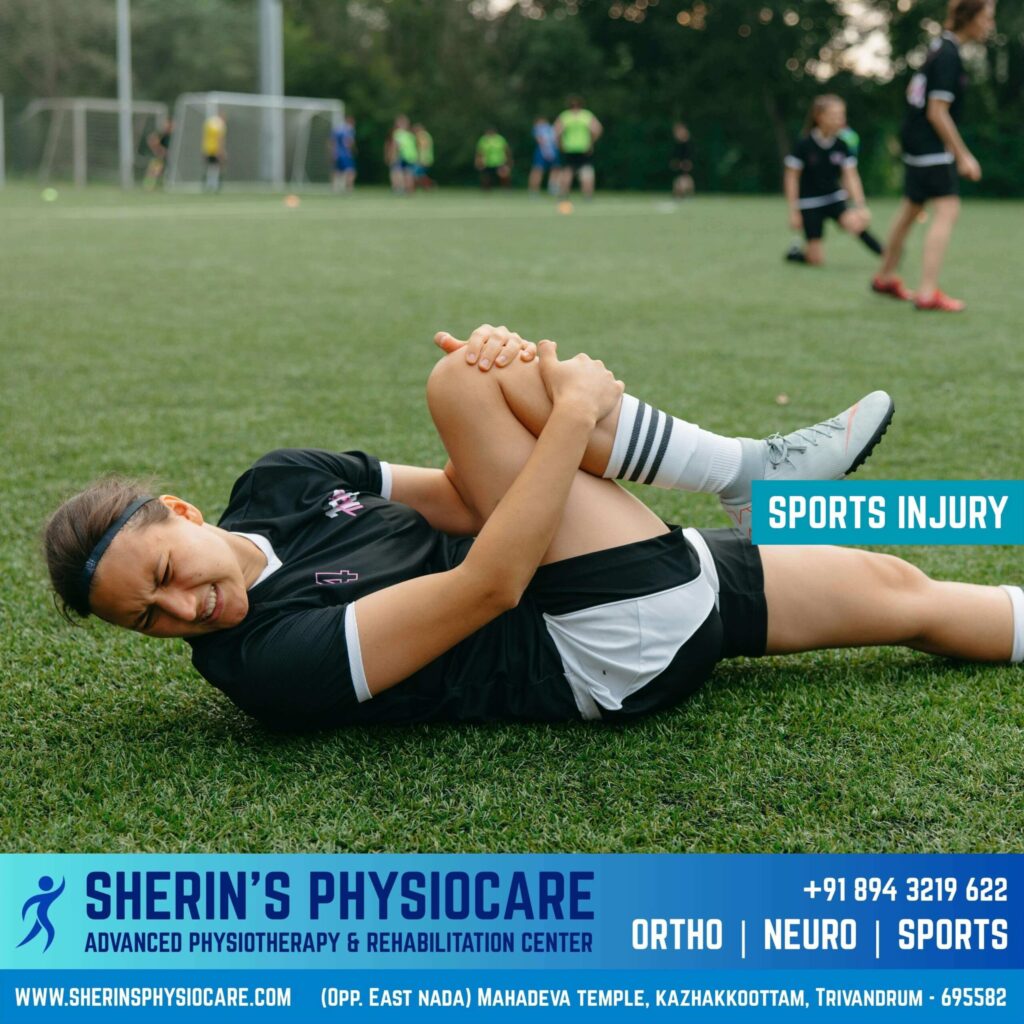
Sports Injury
Sports injuries refer to any musculoskeletal injuries sustained during physical activity or athletic performance. These can affect muscles, ligaments, tendons, joints, or bones. Injuries may occur due to overuse, poor technique, lack of warm-up, or accidents during training or play.
Sports injuries are commonly caused by:
Sudden impact or collision
Overuse of muscles or joints
Inadequate warm-up or cool-down
Poor posture or biomechanics
Returning to sport too early after injury
Improper training or equipment
Muscle imbalance or joint instability
Sprains & strains
Ligament tears (like ACL, MCL)
Muscle pulls or tears
Tennis elbow / Golfer’s elbow
Runner’s knee / Jumper’s knee
Rotator cuff injuries
Shin splints
Stress fractures
Shoulder dislocations
Ankle injuries
Reduces pain & swelling
Speeds up recovery time
Restores strength, flexibility & range of motion
Helps prevent future injuries
Boosts confidence in movement
Improves performance after rehab
Promotes long-term joint and muscle health
Sports Injury - F.A.Q.
1. What is a sports injury?
A sports injury is any physical damage to muscles, bones, ligaments, or joints that occurs during sports, exercise, or physical activity.
2. When should I see a physiotherapist for a sports injury?
If you experience persistent pain, swelling, reduced range of motion, or difficulty walking or performing activities, you should consult a physiotherapist immediately.
3. Can I continue playing with a minor injury?
No. Continuing to play can worsen the injury and delay healing. Proper rest and physiotherapy are essential, even for minor issues.
4. How long does recovery from a sports injury take?
Recovery time varies depending on the injury’s severity, location, and your body’s healing response. It could range from a few days to several weeks or months.
5. What happens during a physiotherapy session for sports injury?
You’ll undergo a physical assessment, followed by treatments such as manual therapy, therapeutic exercises, taping, electrotherapy, or rehab planning based on your injury.
6. Can physiotherapy help prevent future injuries?
Yes. Physiotherapists not only treat current injuries but also identify movement faults, muscle imbalances, and poor biomechanics to help prevent re-injury.
7. Is physiotherapy useful even after surgery?
Absolutely. Post-surgical sports rehab is crucial for restoring joint function, strength, and mobility — and for a safe return to sports.
8. Are physiotherapy treatments painful?
Some exercises or mobilizations might cause mild discomfort initially, but treatments are designed to be safe, controlled, and progressively adjusted for your comfort.
9. Can athletes return to full performance after injury?
Yes, with proper physiotherapy and sports-specific rehab, most athletes return to their pre-injury level or even better, depending on discipline and compliance.
10. Why should I choose SHERIN'S PHYSIOCARE for my sports injury rehab?
Our clinic in Kazhakkoottam, Trivandrum specializes in tailored sports injury recovery programs led by experienced physiotherapists — focused on fast, safe, and complete return to sport.
